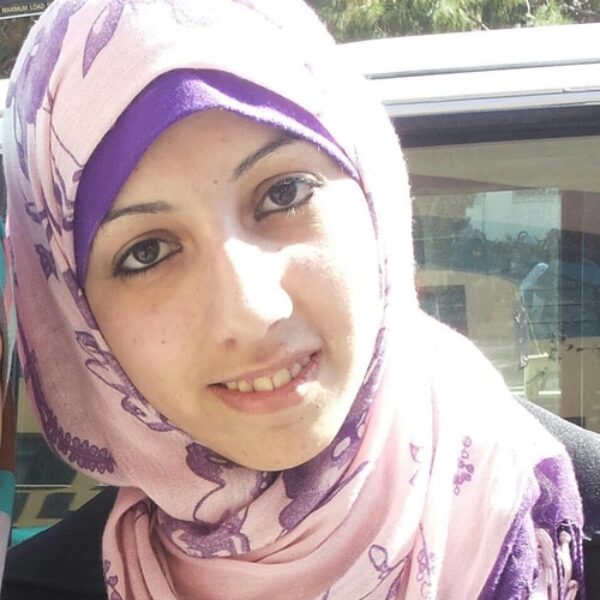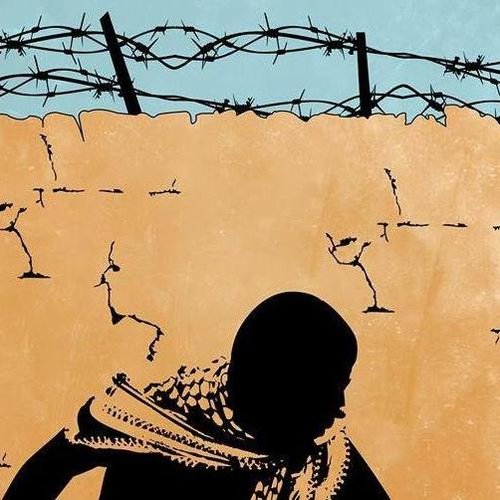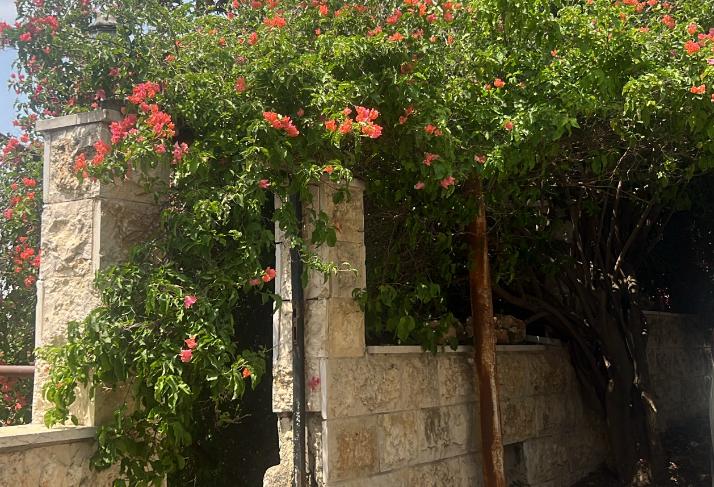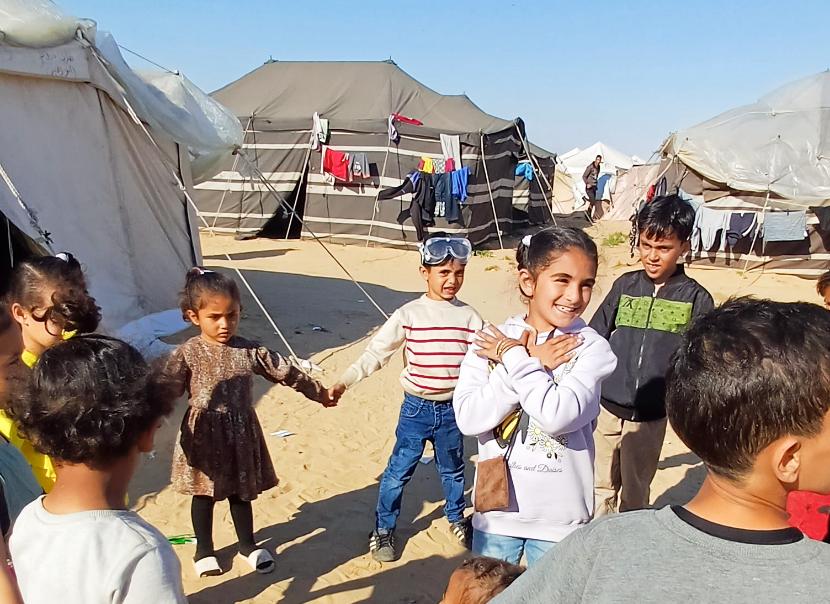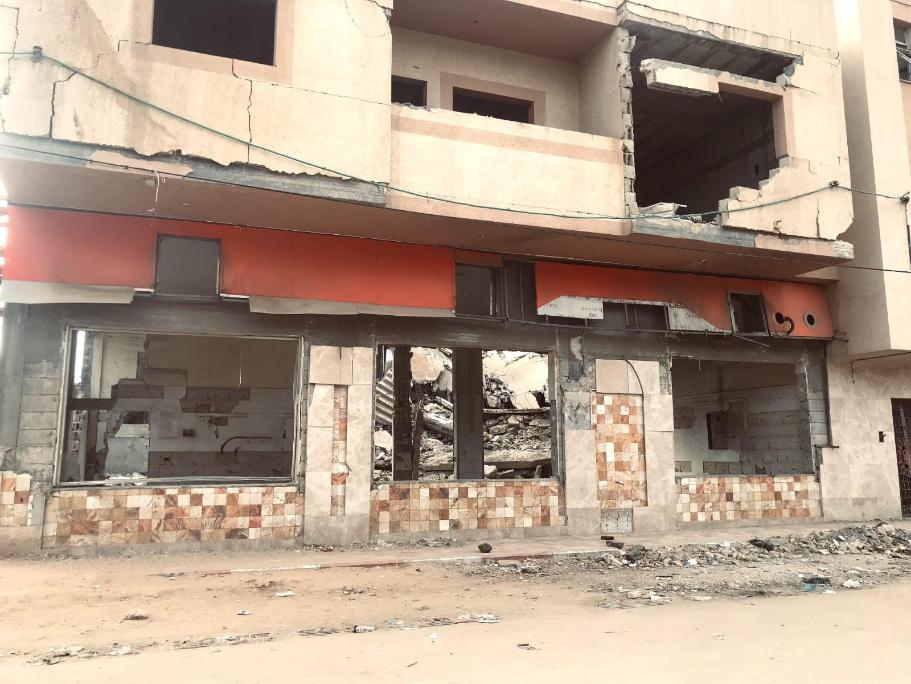Have you ever wondered why people everywhere not only know about the Holocaust, but get emotional about it? It is not only because the Holocaust was one of the deadliest genocides in history. After all, horrifying atrocities occurred in places such as Rwanda and Armenia as well, and don’t elicit quite the same reaction. Instead, I’d say that it is because the film industry has brought it to life repeatedly, ingraining it into the consciences of people everywhere. Think of “Schindler's List,” “The Pianist,” “Life is Beautiful,” ”The Book Thief,” and many more.
Perhaps, then, films about Palestine that capture both the heart and mind are worth a thousand missiles fired on Israel. I recently learned about a new film in the making that could join the likes of “Five Broken Cameras” in changing the public’s view of Palestine.
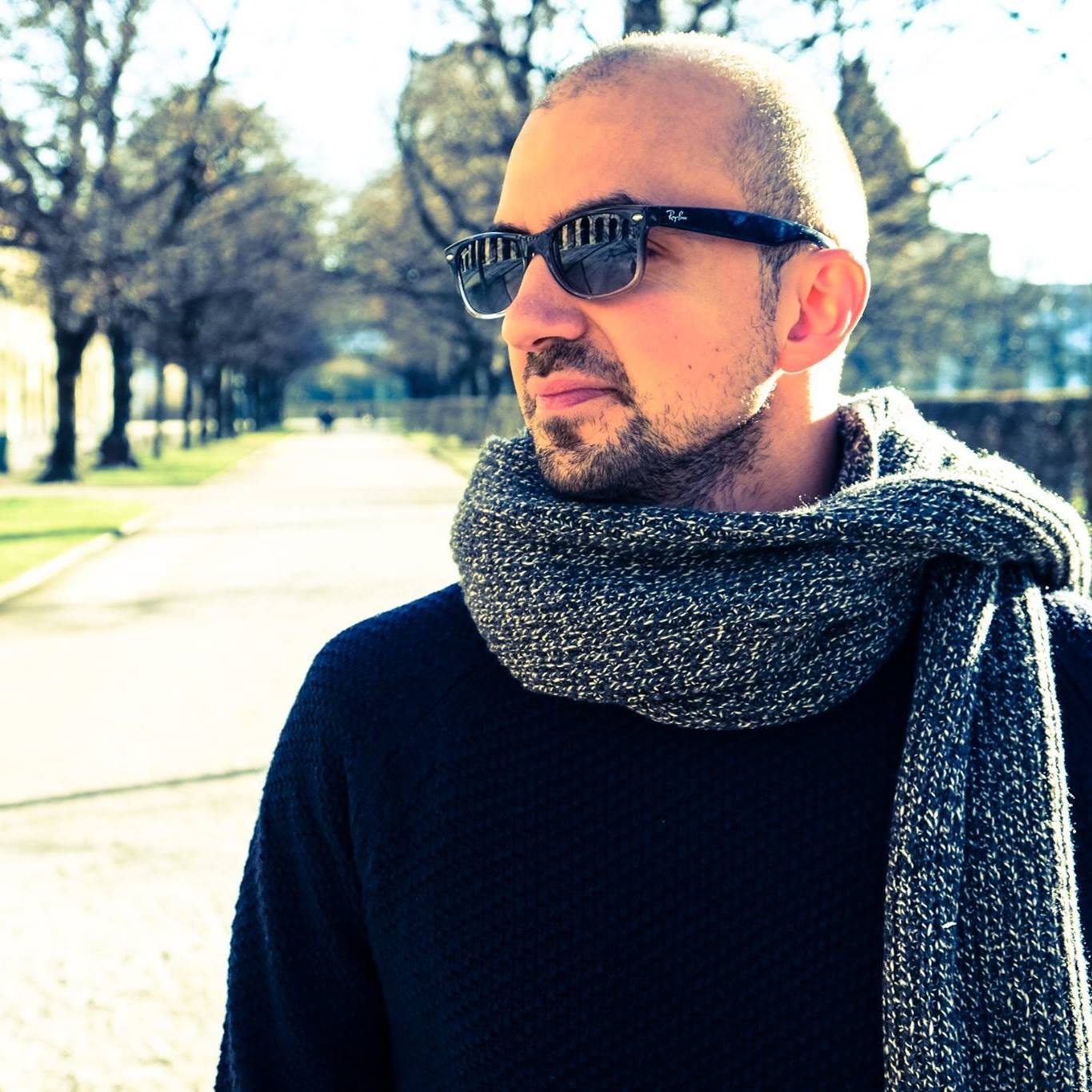
Through Facebook, I met Motaz Matar, a Palestinian film director and scriptwriter who now lives in the United Arab Emirates. Matar told me about his new film, called “Slingshot,” and shared his script.
"Filmmaking is a peaceful way to share your story and point of view," said 30-year-old Matar. "Every time you express yourself, someone in the world will hear and react to your story."
Matar, a Palestinian refugee originally from a city called Al-Majdal in historic Palestine, was born and grew up in Jordan. In 1948, at the age of 6, Matar's father was forced to leave his hometown and walk to Gaza, carrying only a few of his belongings, including the deed to his land. "My uncle, who was just 4 years old at the time, became sick and died on the way," Matar said.
The tale of his father's loss, which reflects the loss of all Palestinians, inspired Matar to dedicate his life to sharing Palestinian stories with the world. "For a lot of Palestinians, Palestine represents more than just our country or hometown. It’s an idea, an aspiration that extends beyond boundaries, time and place," he explained.
Matter earned his bachelor’s degree in graphic design from a private university in Jordan, then a master’s from the Red Sea Institute for Cinematic Arts.
"I used to write poetry at an early age, but then I searched for a visual form to express my feelings and tell stories," he said. "I was introduced to filmmaking by experimenting with a camera and making short videos."
In 2006, Matar had the opportunity to direct and write a three-minute film for a workshop conducted by the University of Southern California and the Royal Film Commission.
"This experience changed my life. I knew then that I was in love with filmmaking," he recalled.
Matter has produced many documentaries, but “Slingshot” is his first feature film.
Slingshot, which was shot in the UAE, is a non-linear film that shifts back and forth between the present day in Gaza and the Six-Day War in 1967. In present-day Gaza, the relationship between a young man named Jawad and his family and girlfriend is falling apart, when he learns his father is in the hospital. Some mysterious happenings prompt him to imagine his father's past, and we learn of an old love story. By choosing love as his theme, Matar hopes to lure viewers into identifying with Palestinians as human beings, with stories anchored not only in tragedy but also emotions and milestones common to everyone.
"Imagine how life would be if there were no checkpoints, separation and wars," Salma (a character in the film) says to Hakam in one of the scenes.
The film also juxtaposes the image of the Palestinian resistance fighter—who wears a hatta, a black-and-white scarf representing his heritage and uses a David-style sling against his enemies—with that of an Israeli soldier in green military uniform and combat helmet, who uses his rifle against the occupied Palestinians.
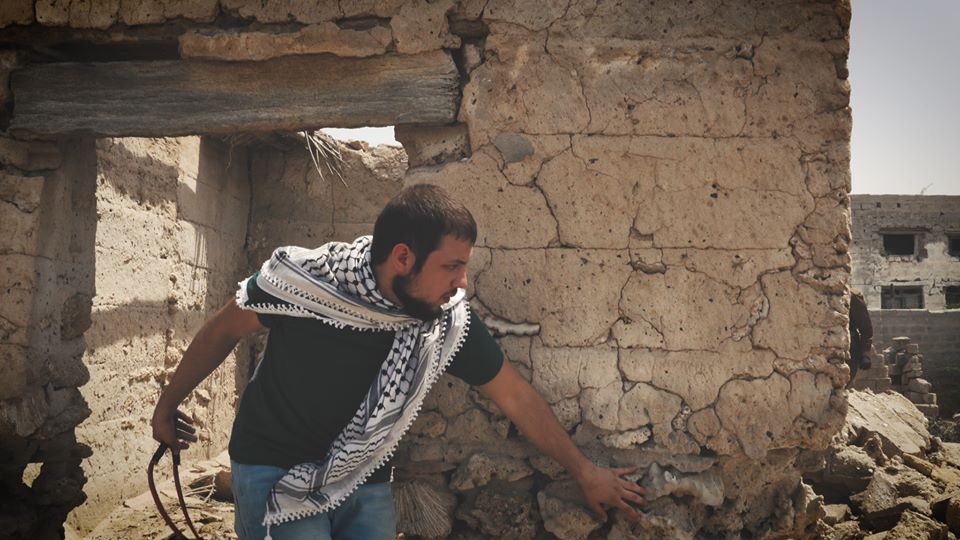
Inspired by the poems of Mahmoud Darwish and Nizar Qabbany, Matar hopes to promote awareness and love through his storytelling and imagery. As Darwish says in his poem, "Think of Others":
As you prepare your breakfast, think of others
(do not forget the pigeon's food).
As you conduct your wars, think of others
(do not forget those who seek peace).
As you pay your water bill, think of others
(those who are nursed by clouds).
As you return home, to your home, think of others
(do not forget the people of the camps).
“Slingshot,” which will be entered into film festivals early next year, was produced independently, without any help from external funders. "[Producer] Liz Dagette and I wanted to create a compelling story using whatever means available to us,” he said simply. “We only want the support of people who share our love for art and storytelling, and who believe in us and our story."
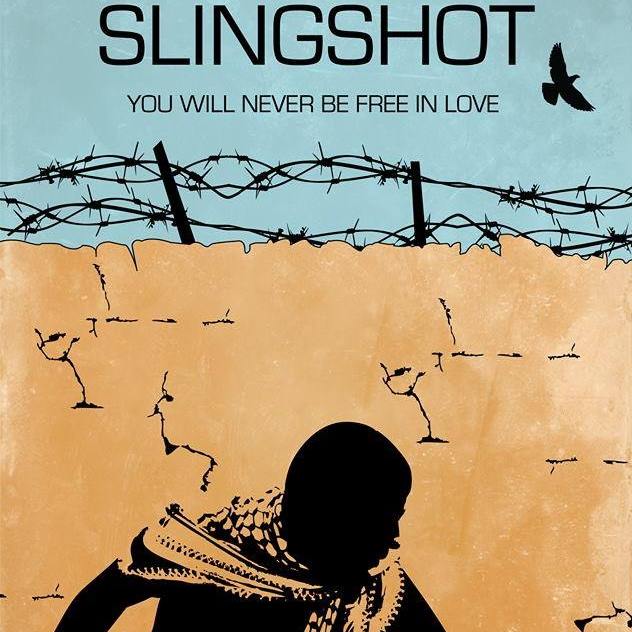
From the UAE, Motaz put out an online call for actors. "That was my big challenge," he commented. "I looked for actors who are passionate and willing to donate their time to make the film a success."
The crew of the film come from different parts of the world: Palestine, Jordan, Lebanon, Egypt, United States, UAE, Greece, India and Macedonia. None of the crew members were paid in return. Instead, they were compensated by their belief in the power of art and their desire to contribute something significant to the Palestinian cause. That's a very powerful message of unity in light of the division that defines Arab countries today.
Today, after two years of writing and development, the film is in its last phases before completion. Soon, the film will be submitted to the Berlin Film Festival and others in the hope of winning "a distribution deal that could bring the film to U.S. theaters.”
Matar has big dreams of telling more stories about Palestine. His next film is called “The Abyss of the Bliss,” which tells the tale of a Palestinian farmer who tries to save his beloved cow, Yasmeena, after the animal wanders too close to an Israeli checkpoint.
"Some people want to write, some want to play music, others want to paint or protest to assure their voices are heard. For me, filmmaking is my way of resistance," Matar concluded.
Posted November 27, 2016

